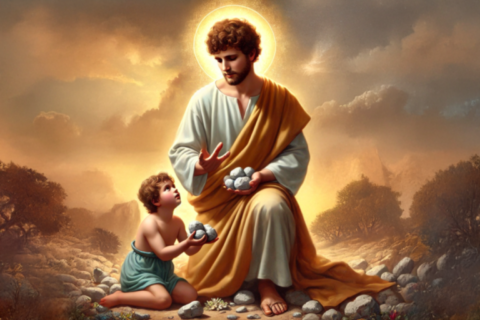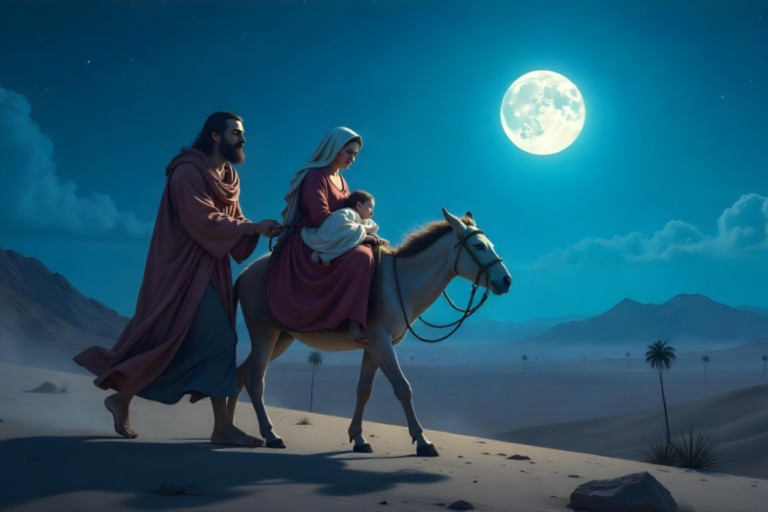Innocents: A Call to Justice and Liberation

Immediately after Christmas Day, we encounter celebrations that, at first glance, may seem shocking against the backdrop of love, peace, reconciliation, and unity that characterise this season. On 26th December, we commemorate the martyrdom of Stephen, recognised as the first martyr who testified to his fidelity to the risen Christ, giving his life in the process. It is precisely Christ, the Messiah, whom we celebrate at Christmas—the Lord, the Prince of Peace who, through His life, has brought restoration and reconciliation. In Him, all things are possible.
However, the commemoration of the martyrdom of Stephen, along with the memory of all the Holy Innocents two days after Christmas, reminds us that the mystery of the Incarnation has initiated human liberation. And this liberation is not without struggles. "His Kingdom" arrives at every moment, facing challenges, crossroads, and persecutions. The worship of the Child of Bethlehem in the manger would be incomplete if we do not consider the challenge of proclaiming the Good News in a world filled with brokenness and darkness, holding fast to the mystery of the Cross and the Passion. For He who lies in the humility of the manger is the same One who will challenge the culture of death on the cross.
With Saint Stephen, we remember the martyrs of faith, those brave defenders of Truth who have been known and revered throughout history. In recalling the Holy Innocents, we honour those who have died in the shadows: voiceless and persecuted, forgotten and silenced by the powerful. The Innocents are crushed without ever having been able to extend their arms to cry out for mercy.

Only the Gospel of Matthew (chapter 2) recounts Herod's massacre of the innocents. The evangelist's intention is not merely to describe a historical event but to present a profound theological reflection. Although the massacre is absent from historical records—such as those of the Jewish historian Flavius Josephus—the brutality of Matthew’s story aligns with Herod’s cruelty. This narrative unfolds in the context of the angel's revelation to Saint Joseph, the arrival of the Wise Men from the East following the star of Truth, and the tyrant’s murder of the innocents. Matthew’s story warns us of the dangers of absolute power. In Matthew’s Gospel, Jesus is portrayed as the new Moses, the ultimate Liberator who has come to lead His people, the new people of God, out of darkness and slavery.
It is not a coincidence that only Matthew speaks of the star guiding the wise, those who seek truth, freedom, justice, and redemption. In Matthew, Jesus is the star itself, the light that comes from above. He is, therefore, the Light that embodies Truth. The wise from the East follow this light because they seek the Truth, while Herod represents darkness, coldness, and evil. Those who walk in the light, who is Christ Himself, live in the authenticity of the human heart.
Herod, a vassal king of Rome and a puppet of dominant power, was relentless in his character. He did whatever was necessary to maintain his grip on power, even going so far as to murder his wife, brother, and three of his children. He used repression to silence his opponents. Living in a turbulent time, when the territories under his rule were contested, he was also known as a builder, notably for the second reconstruction of the temple. However, these reforms and ambitions came at a high cost, involving alliances, stratagems, taxes, and political tricks that further oppressed the less fortunate. The poor were exploited, forgotten, and marginalised.
Many of his adversaries disappeared, cast into pits. The account of the innocents in Bethlehem, we reiterate, is theological. Perhaps it was deemed insignificant, which is why it was not recorded in the historical reports of the time. It occurred in a remote and forgotten village, at a time when children were not considered persons, and widows, orphans, and foreigners had no rights. Why mention such an event compared to other more significant actions taken by Herod?
The message in Matthew's Gospel is clear: no matter how much the powerful of this world strive to maintain their position at any cost, and no matter how the strong continue to crush the majority and rob their peoples of hope, they cannot thwart God's plans, which desire that all may have abundant life. God wants humanity to live; He wishes for abundant life for all, even if the Herods and Herodias of this world disguise themselves as gentle lambs and buy consciences.
The Herods and Herodias cast their opponents into pits and continue to kill the innocent. Who are these Herods and Herodias today who throw the innocents into the jaws of oblivion, imprison opponents, and oppress their peoples with iron boots and rifles? Who are those who push large majorities into deserts, fleeing violence, journeys jungles and crossing the Mediterranean and the Gulf of Mexico in overcrowded boats? Who are these Herods who purchase alliances at the expense of ill-gotten gains, illegal mining operations, gold, drugs, oil, and power?
Will we be able to identify the Herods and Herodias of today? Their cruelty and political and religiosity fanaticism are evident each time they amend laws and constitutions to entrench their power. Their thirst for power and ambition sow darkness and death. They spread lies repeatedly, using every means at their disposal to destroy the truth and pervert justice. They are the ones who wield weapons against the poor, destroy forests, drain rivers, and violate Mother Earth.
Will we have the courage to defend the innocents of today? To those who are bombarded day and night, who are used as human shields? The innocents fleeing humanitarian and environmental crises, the displaced by wars, the forgotten on the peripheries. They are the voices that cry out to the heavens. Let us listen to Rachel's lament, in the tears of those lost at sea, in the tears of mothers waiting for their children to return from war, and in the cries for freedom of the disappeared and tortured who seek justice.
Flight to Egypt

Immediately following the massacre of the innocents, the Holy Family is compelled to flee to Egypt, seeking refuge from the violence and cruelty unleashed by Herod. This emigration is not merely a desperate act but a profound reminder that the right to migrate is inherent to human dignity. Today, millions of innocent people face similar situations, forced to abandon their homes due to violence, persecution, scarcity, and lack of opportunities. These individuals embark on a journey in search of a more humane and fraternal future, yearning for a place where they can live with dignity and security.
During this Christmas season, may our prayers inspire us to remember the noblest aspect of our humanity: the merciful heart. May the Mercy that descends from above guide our actions, teaching us to promote justice and to raise our voices in favour of the freedom of the oppressed. We must commit ourselves to fighting against the unjust Herods that still lurk in the world today.
